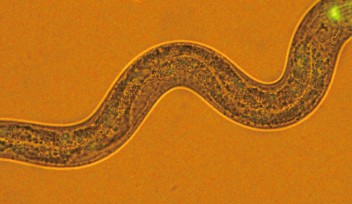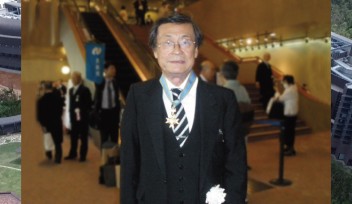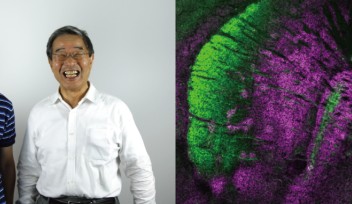Incubator Member Interview: Kwahuu Ocean

Please tell us about your company's business.
I am a professor at the University of Minnesota Duluth’s School of Fine Arts, specializing in contemporary art. However, as part of my research on the stable breeding of squid, which serves as a key motif in my work, I have been collaborating with the University of the Ryukyus since 2010 and with OIST since 2017. Squid are highly delicate creatures, and it’s challenging to keep them alive for experimentation, let alone farm them. For many years, it was considered impossible. However, through joint research with Professor Jonathan Miller’s team from the OIST Physics and Biology Unit, we succeeded in achieving the world’s first multi-generational breeding of the bigfin reef squid (10 generations). This breakthrough led to the establishment of Kwahuu Ocean, with the aim of commercializing this technology.
Our current focus is on R&D to achieve commercial-scale squid farming based on the technology developed at OIST. Within the next five years, we aim to develop small-scale, decentralized aquaculture modules that can be provided to fishermen and facilities such as hotels. The current fishing and aquaculture industries face the challenge of high environmental impact. However, by producing small quantities as needed, we can reduce the burden on the ocean. Moreover, if fishermen can farm squid in parallel with their uncertain fishing operations, it would contribute to a more stable income. Our mission is to expand this new decentralized, local production-based aquaculture model to other seafood like fish and shrimp, as well as to agricultural products, improving the lives of people in Okinawa while preserving its natural environment.
What were the reasons behind your choice to join the OIST Innovation Incubator as a tenant?
It was a natural step to move into the OIST Innovation Incubator as we work to deploy the technology developed at OIST in Okinawa.
How are you currently using the OIST Innovation Incubator?
While we are still actively engaged in joint research with OIST and spend most of our time in the research facilities, we don’t use the incubator as an office much. However, we do interact with other tenant companies in the incubator. We receive administrative support from HAKKI, another incubator tenant, and team-building support from Lequison.
What benefits have you found in being part of the OIST Innovation Incubator?
One major benefit is the networking opportunities. For instance, we recently had a BBQ event where incubator tenants and OIST staff gathered, which provided a great opportunity for mingling with various people. Additionally, since our company utilizes OIST technology, we receive significant support from the OIST Innovation's intellectual property team. Some members have experience in founding companies and provide valuable advice on negotiations with businesses and business know-how, which is incredibly reassuring.
Which companies would you recommend to join the OIST Innovation Incubator?
Many university-affiliated companies are in the medical or engineering fields, but I believe a wider range of companies could enhance the diversity and strengthen connections. For example, it would be great if companies from fields like fashion or design, which currently have less connection with OIST, joined. In particular, I think design is critical to the growth of tech startups, so having someone who can support design would be highly beneficial.
What do you expect from the OIST Innovation Incubator in the future?
When you are focused on research, you tend to only see people related to the lab. That’s why I hope the incubator continues to function as a place where we can meet a variety of people. Knowledge about business management, grant information, and introductions to partner companies—things that can be gained through networking—are extremely important. I also have high hopes for future research at OIST on the breeding of squid and octopus. By licensing the new technologies born at OIST and applying them to society, we aim to give back to Okinawa, which has supported our research all these years.
(Interview date: July 29, 2024)














